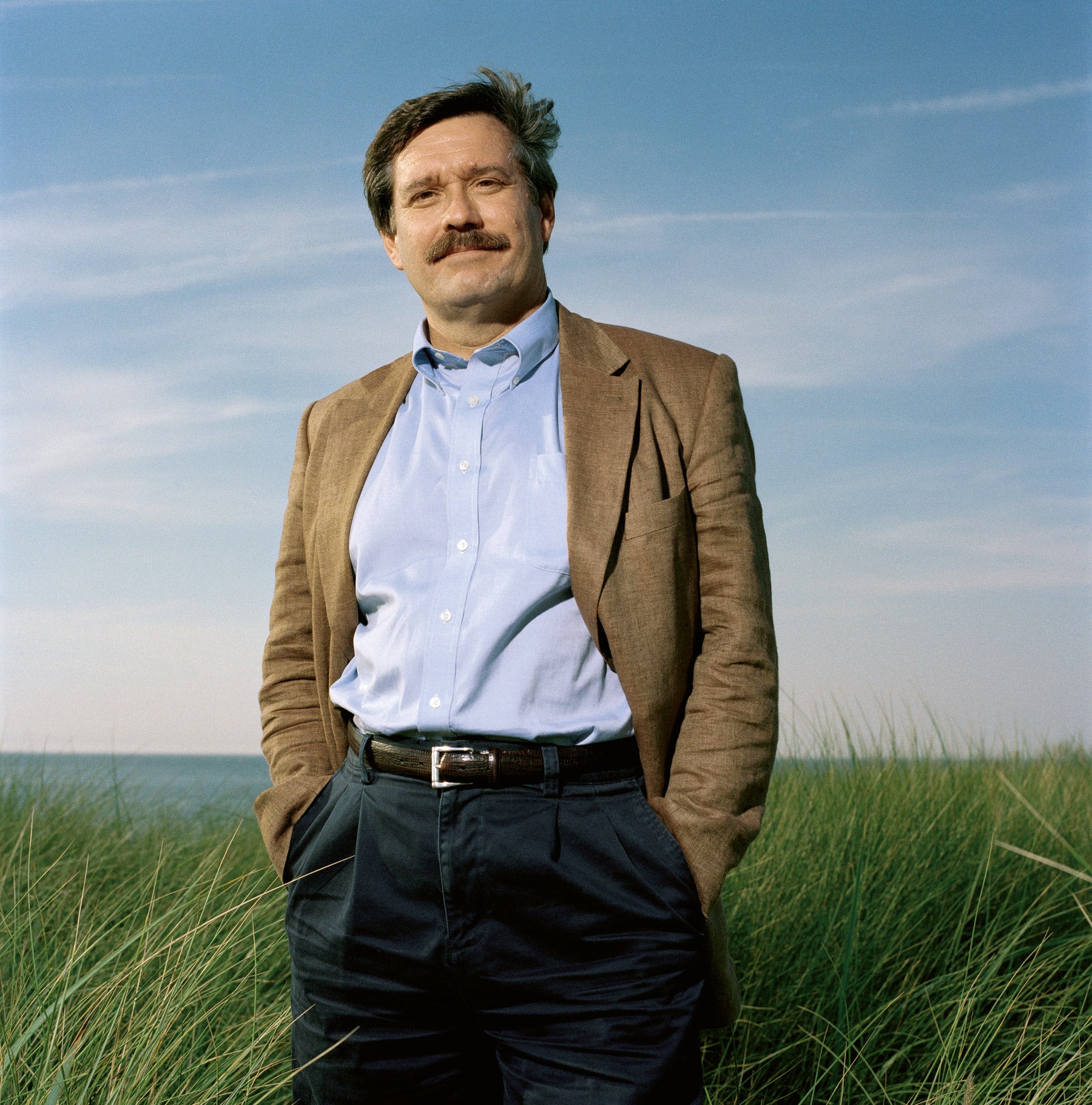Kenneth Scott ’79 makes sure there’s no whitewash after ethnic ‘cleansing’
by Amy Conner Johnson
As senior prosecutor in the Office of the Prosecutor at the International Criminal Tribunal for the former Yugoslavia at the United Nations in The Hague, Netherlands, Kenneth Scott ’79 investigates and prosecutes the most heinous crimes humans commit against each other. Genocide. Grave breaches of the Geneva Conventions. Crimes against humanity.
Focusing on Bosnian Croat atrocities, in seven and a half years he’s won convictions in two trials and landed indictments in a third–significant accomplishments in a system where trials commonly last two years due to four-hour court days and translation delays.
“There are days when it all comes crashing in,” said Scott. “You read a particular witness statement, or you see something, you talk to a witness and all of a sudden it becomes, How could this happen? How can human beings do this to each other? People have to be held accountable.”
But holding ringleaders accountable is difficult in the face of constant resistance from the states of the former Yugoslavia. He and his colleagues know they will never bring to justice all those who deserve it.
“In many instances, there has been very strong state-promoted and coordinated obstruction to the tribunal’s work, even from their own intelligence and police agencies,” Scott said. Evidence has been concealed, and investigated or indicted individuals have been protected. Even where there is goodwill, he adds, the bureaucracies often operate poorly in the postconflict environment, where ethnic and political differences persist.
“Consider investigating and prosecuting the most complex cases with only the most limited traditional police powers, on territory which is not controlled by the investigative or prosecutorial authorities,” he said, “where much of your evidence-gathering depends on the goodwill of the formerly warring parties, where you are essentially asking the various parties to give you evidence which incriminates them or their leaders.”
With only the most limited subpoena power, no grand jury, no compelled immunity process, he added, “it’s often ‘one step forward, two steps back.'”
Compounding these challenges is a mandate of the U.N. Security Council calling for trials to finish by 2008 and all work by 2010. No additional indictments will be brought. Only current cases will go to trial.
But Scott and his colleagues have been buoyed by the help they’ve received from some quarters. “It comes from the victims you deal with and the people who come out of the process. Witnesses come here from [their home countries]. They’ve never traveled before. Some say they were really terrified to come. But then they say, ‘The process was part of my healing,'” Scott said. “When witnesses feel better for having testified, you think, ‘Yeah, this is good, this is important.'”
At Harvard, Scott didn’t study international law. But he spent many hours working for the Harvard Legal Aid Bureau, an experience that inspired him to pursue a career in the public sector.
He served for 12 years as a federal prosecutor and, in the 1990s, began following the conflicts in the Balkans with growing interest. When the chance to work at The Hague came his way, he saw it as a once-in-a-lifetime opportunity.
Scott knew his decision to go to Europe would mean upheaval for his wife and especially for his two sons, who were teenagers at the time. “I give them a lot of credit,” he said. “They made the adjustment. Now, looking back, they value the experience and are glad they did it.” One son attends college in Boston and the other in London.
On a recent trip to Bosnia, war crimes victims welcomed Scott into their homes, showering him with modest, sincere hospitality. “They were very appreciative of the fact I was there,” he said. But, he added: “There’s just a huge amount of work still to be done.”
